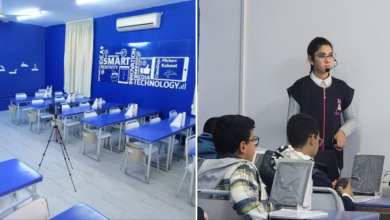Tunisia, an artificial intelligence hub in Africa and the MENA region

Note: This article was originally published by the same author in the Mediterranean Perspective.
In 2020, Friedrich Naumann Foundation for Freedom described Tunisia as a “an Artificial Intelligence Hub in Africa” and the Middle East and North Africa (MENA) Region. This conclusion was based on the Government AI Readiness Index published by The Oxford Insights Foundation and the International Development Research Centre in 2019.
Then, Tunisia ranked second in Africa (world 54th), just behind Kenya and “ahead of South Africa (who scored 68th place), Ghana (75th), Morocco (80th) and Algeria (141st).”
In the 2022 edition of the same ranking, the North country ranked 70 on the International scale and 4th on the African one, a drop that did not prevent it from maintaining the lead in the MENA region, according to the local media Managers.tn.
AI startups have flourished in the country over the last few years, encouraged in this by an AI-friendly environment. In 2019, the World Bank announced two investment projects in Tunisia related to digital transformation, one of which was “was designed to support the Government’s ‘Startup Tunisia’ program which aims to catalyze the creation and growth of digital, innovative startups and SMEs, and boost economic and employment opportunities for Tunisia’s youth.”
The recent announcement by the world renowned BioNTech SE (Nasdaq: BNTX, “BioNTech”) and InstaDeep Ltd. (“InstaDeep”) that the former would acquire the latter, co-founded by two Tunisian developers, Karim Beguir and Zohra Slim stands witness to the potential Tunisian professionals have for leading this revolution.

AI attracts many Tunisian young researchers in a country that has embarked since the 1990s on a digital revolution. In 2002, the government inaugurated the Virtual University of Tunis in order to gradually integrate the communication and information technology in higher education.
Tunisia’s promise to lead a regional AI revolution is no coincidence. Soon after independence, Tunisia embarked on projects meant to modernize education. The latter opened the door of social mobility to many young people, long constrained socially by centuries of feudalism and 8 decades of French colonialism. Tunisian families continue, due to this decades-long tradition, to attach much social prestige to higher education.
Besides government openness to AI, Tunisia relies in its digital revolution on a higher education system with long traditions in training high-skilled engineers, software developers, and computer experts.
One of the challenges Tunisia faces, however, is the exodus of its engineers, driven by a dire economic situation at home. Tunisia ranks second in terms of brain drain in the MENA region. In 2021, Anadolou Agency reported that almost 4000 engineers had left the country, not to mention the Tunisian doctors who have enjoyed an international fame for their skills.
La Sorbonne, Oxford, Harvard, Cambridge are among the world’s prestigious universities teeming with Tunisian researchers, lecturers, and engineers.
Here, the AI revolution in Tunisia may open a door of hope for a rather more encouraging environment for Tunisian youths to stay. For this context to be created, a digital transformation needs to take place.
Yet, digitization is still slow in the Maghreb country. Tunisian institutions in the public sector are hesitant or rather unwilling to embrace a full digitization of public services. Many Tunisians complain of the daily long queues for services that could be obtained from home.



